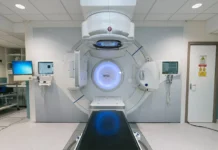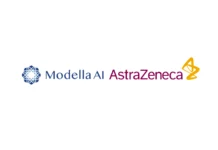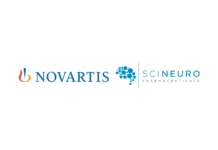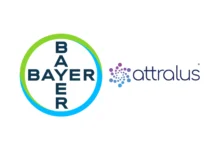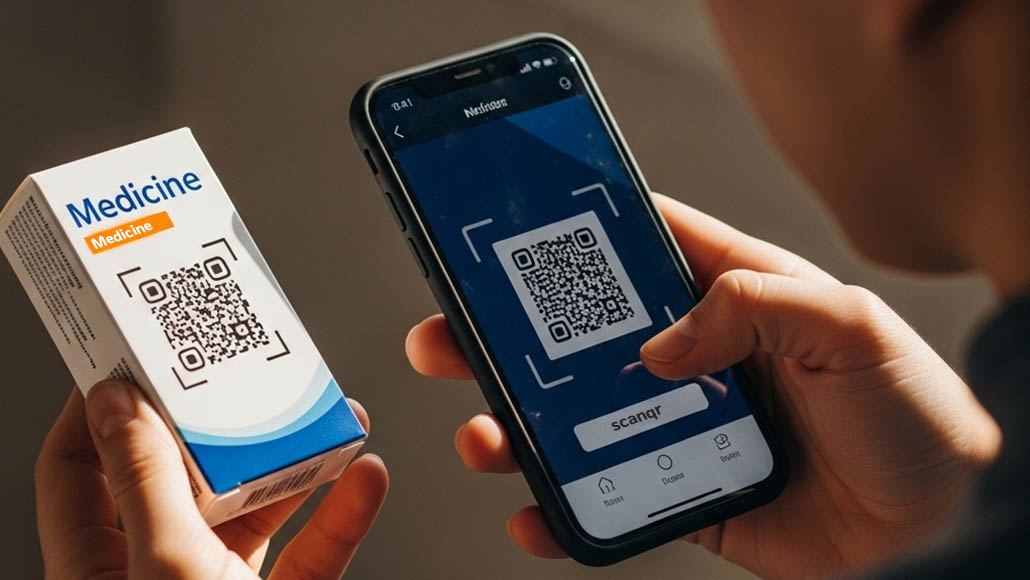Smart labels are essentially packaging components which are embedded within the advanced information-sharing technologies like RFID – Radio Frequency Identification—and QR codes, as well as NFC, which is near-field communication chips. Unlike the standard printed information, these elements can go ahead and store, transmit, and also update the data by helping with a host of applications right from batch tracking to condition tracking.
It is well to be noted that NFC-enabled packaging especially integrates microchips, which are capable of wireless communication along with compatible devices, most commonly smartphones. Simple tap of the phone to the package Goes on to activate secure data transfer, thereby enabling instant access to product authentication records, usage guides, and even regulatory documentation. This technology goes on to offer a much richer and more secure interaction as compared to the static barcodes, which can be more easily copied.
The versatility of these technologies goes on to mean that they can be customized to specific requirements of a pharmaceutical product. For example, high-value biologics may as well prioritize counterfeit protection and cold chain tracking, while chronic disease medication may make use of the NFC links in order to connect patients with customized treatment reminders. This kind of adaptability is what makes the smart labels, as well as NFC-enabled packaging, very promising innovations when it comes to diverse therapeutic elements.
Counterfeit prevention
It is well to be noted that counterfeit pharmaceuticals are a worldwide health crisis and happen to undermine the treatment efficacy, thereby endangering the lives and also eroding the dependence on healthcare systems. As per WHO estimates, the burden of falsified medicines is especially very high in regions having less regulated supply chains, but the fact is that there is no market which is immune. For the pharmaceutical brands, safeguarding from the counterfeits is not just a legal and ethical duty but also a financial necessity.
Apparently, it is the smart labels as well as Near Field Communication (NFC)-enabled packaging, which offers a robust as well as technology-driven safeguard element against counterfeiting. By way of embedding encrypted NFC chips, or even serialized smart tags, manufacturers can go ahead and create a secure digital fingerprint for every product unit. This distinct identity can be verified instantly by way of a secure database, hence making it almost impossible for the counterfeiters to duplicate it.
Interestingly, the benefits extend to every node of the supply chain. Distributors, pharmacists, and also patients can participate when it comes to authentication by making sure of numerous verification points before the medicine goes on to reach the end user. With time, shared responsibility enables establishing a culture of vigilance where the authenticity of every package is taken very seriously, just like the medicine itself.
Elevating the engagement of the patient and also adherence
When it comes to pharmaceutical care, patient adherence – the degree to which a patient follows medical advice correctly – is often as crucial as the efficacy of the drug. Lower adherence rates can lead to very poor treatment results, thereby increasing hospitalizations and higher overall healthcare expenditures. Smart labels as well as NFC-enabled packaging offer a way to directly take care of this persistent challenge. By way of tapping an NFC-enabled package with the help of a smartphone, patients can have access to interactive instructions, multilingual resources which are customized to their specific medication, and even video demonstrations. For intricate therapies like injectables or inhalers, this real-time guidance can greatly decrease the misuse as well as anxiety, hence empowering the patients to manage in a more confident way their treatment type.
The fact is that these technologies can also integrate with digital health platforms so as to offer automated reminders, refill notifications, and also adherence tracking. This goes on to create a feedback loop wherein patients remain engaged with their treatment plan while the healthcare providers get timely insights when it comes to compliance patterns. In effect, the packaging happens to become a living extension of the continuum, thereby reinforcing the level of trust as well as safety.
Supply chain transparency and integrity of the cold chain
Global pharmaceutical supply chains are complex and often happen to span over many continents. For numerous specialty drugs, especially insulin, vaccines, and biologics, stringent temperature control is non-negotiable. A single lapse in cold chain integrity can go on to make a product ineffective, thereby leading to recalls, which are expensive and a potential patient harm.
From a standpoint of supply chain management, this level of visibility goes on to support the regulatory compliance, decrease waste, and also build the stakeholder confidence. For patients as well as healthcare providers, it happens to add an extra layer of assurance that the medicines in their hands have been stored as well as handled under the strictest of conditions, which is a critical factor when it comes to both maintaining the safety as well as the credibility of the brand.
Building the trust of a brand in a digital-first world
Brand trust within pharmaceuticals happens to be owned by way of a combination of proven safety, efficacy, and transparency records. In the digital-first environment that we live in today, patients as well as healthcare professionals anticipate instant and verified information, and smart labels and NFC-enabled packaging are indeed the powerful tools in order to deliver it. These technologies help the brands to maintain a direct and secure communication channel with the end users. Beyond the authentication levels, they can offer customized content, urgent safety notices, and even post-market updates without any kind of expenditures or delays of reprinting the packaging.
With time, this capacity to deliver dependable and up-to-date information goes on to build a perception of the brand as being both patient-focused and technologically advanced. In markets where the competition is very cutthroat and the switching expenditure is low, the perception can go on to translate into loyalty, which is lasting.
Passing through a very intricate spectrum
The pharmaceutical sector functions under some of the most stringent regulatory regimes in the world, and any new packaging technology has to align with the frameworks. The falsified medicine directive (FMD) by the EU as well as the US drug supply chain security act (DSCSA) both mandate advanced tracking as well as verification systems – the objectives which smart labels as well as NFC-enabled packaging can directly support.
But integrating these technologies also goes on to bring in certain privacy considerations. NFC-enabled systems, which store as well as transmit patient-specific data, have to comply with laws like GDPR in Europe and HIPAA in the US, which means executing robust encryption as well as secure servers along with clear consent protocols for any kind of data collection.
It is well to be noted that regulatory approval processes when it comes to packaging changes can be pretty time-consuming, especially for prescription medicines. Any kind of successful execution, hence, requires early planning, coordination with regulatory agencies, and supply chain partners, as well as cross-functional partnership.
Technological Enablers and Integration Barriers
The successful rollout of smart labels as well as NFC-enabled packaging goes on to depend on a mix of software, hardware, and network infrastructure. Cloud-based data management systems, device interoperability, and also secure authentication platforms are all necessary in order to unlock the complete value of such technologies. Emerging innovations like blockchain are getting used in order to create end-to-end records of the journey of a product, thereby strengthening both dependency and traceability. Simultaneously, advances within the printed electronics are making smart labels much thinner, lighter, and eco-friendly, hence reducing both material usage and expenditure.
Sustainability implications – go smart or green?
As sustainability goes on to become a strategic priority for the pharmaceutical sector, the environmental effect of packaging innovation comes under a lot of scrutiny. While the additions of electronics might look like a counter to eco-friendly objectives, many smart label solutions now make use of minimal materials, energy-efficient manufacturing processes, and recyclable elements. As a matter of fact, the waste reduction potential when it comes to smart labels and NFC-enabled packaging can be prominent.
The challenge moving forward is going to be balancing technological sophistication along with circular design principles, hence, making sure that the future smart packaging in pharmaceuticals is not just disconnected and secure, but at the same time, it is completely aligned with the worldwide sustainability aims.
What does the market outlook say?
Smart packaging in pharmaceuticals is still in the early stage of adoption, especially for high-value products, where security as well as disability go on to justify the investment that has been made. Notably, the smart market size is anticipated at $18.23 billion in 2025 and is most likely to reach almost $39 billion by the end of this decade, growing at a CAGR of somewhere around 16.3% within the forecast period.
But as the technology costs decrease and regulatory pressures grow, its adoption is anticipated to speed up throughout a wider range of therapeutic areas.
Apparently, the market drivers are crystal clear—rising counterfeit challenges, increasing requirements for supply chain transparency, and strategic significance when it comes to brand trust.
It is worth noting that within the next decade, smart labels and NFC-enabled packaging are most likely to become the sector standard rather than just being labelled as the differentiators from competitors.
Packaging as a platform for trust
Pharmaceutical packaging, undoubtedly, is evolving from being just a passive container into a more active participant when it comes to the healthcare ecosystem. Smart labels and NFC-enabled packaging happen to be at the center of this transformation, which offer unmatched opportunities in order to enhance the safety, make the trust more robust, and also engage patients in ways that are both new and meaningful.
The fact is that the companies that invest early as well as strategically within these technologies are going to be very well positioned in order to take the lead in a market where dependence, transparency, and safety are of major value. In this new spectrum, packaging is not only about protecting the products, but it is more about protecting the reputation, the patients, and also the integrity of healthcare.



